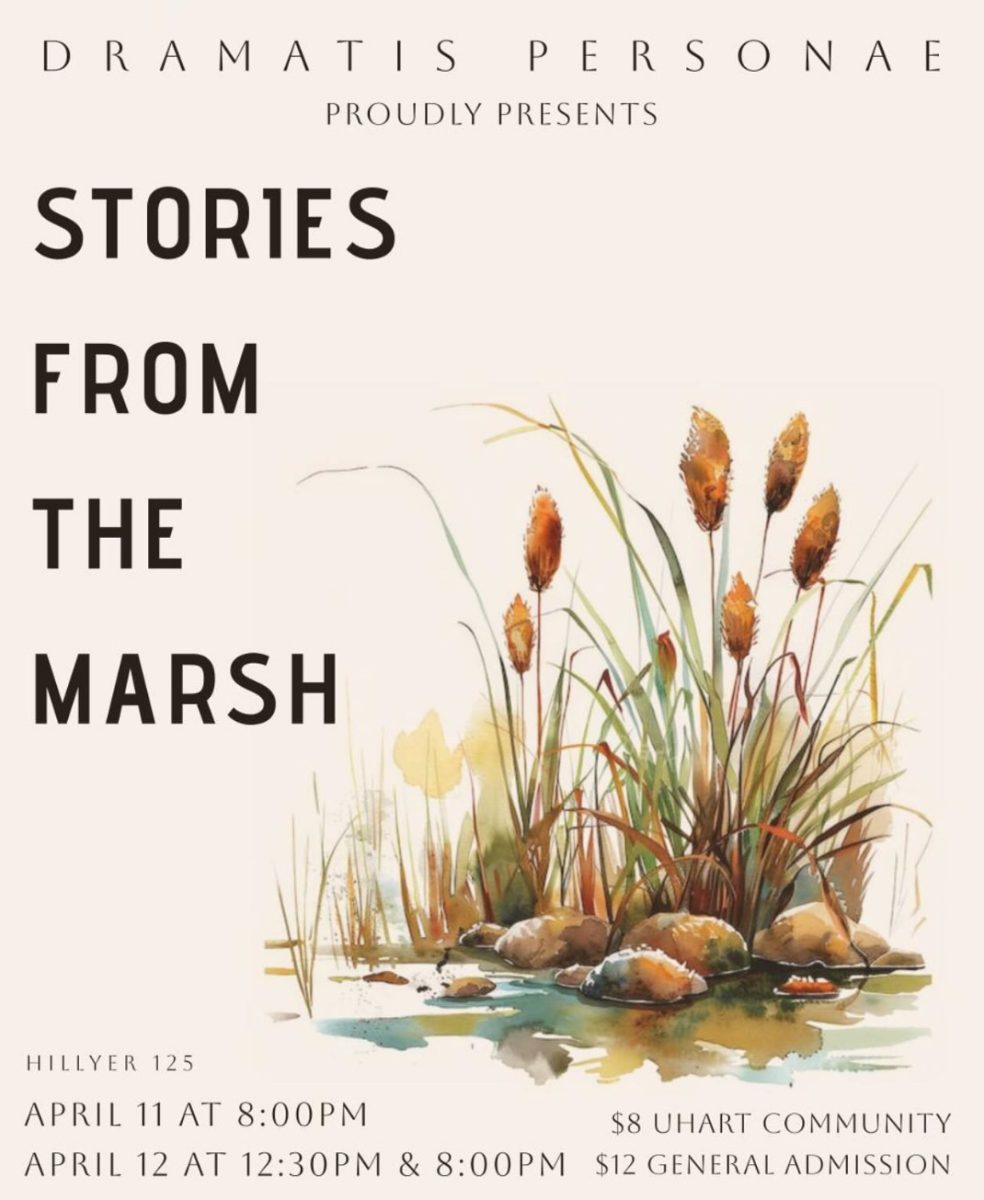Vilna Play Review Based on Hartford Professor’s Field Work
April 17, 2019
The setup of the stage was very minimal, which gave it ability to shed light into the simplicity of the times in 1926-1943 where communities such as Vilna had little to live with after so much was taken from them.
Throughout the play, the props were thoughtfully used and added to the audience›s sense of connection to the actors.
Moments such as watching the Zeidel family at the dinner table, Yudi working on his sketches for the camps, or even Motke laying on his bed in the basement of the hospital; each scene the props making it look more different and enticing.
Most importantly, the use of the props never took away the connection the audience felt with each and every actor who played a part, only enhancing it.
At the start of the play, the Ghost of Motke Ziedel, played by Mark Jacoby, appeared and told the audience of the story of Vilna and what had happened during his lifetime; the people he’d met and the people he’d lost would be told in this all-capturing story.
The play continued with a scene of Motke as a child with his mother Naiomi Ziedel (played by Carey Van Driest). They were meeting with Chief Customs Officer, Victor Nowicki (played by Patrick Toon) to talk about a business deal that had to do with the family’s glove company.
Fast forward to Motke meeting his soon-to-be brother Yudi Farber (played by Seamus Mulcahy), a German orphan. Motke had found Yudi, all by himself reading a geometry book and wondered why people would do that just for fun. Little did he know, Yudi was very smart, intelligent, and would become a brilliant engineer.
As for Motke, he still had no clue what he wanted to do with his life, so it was natural that he felt a little jealous.
The two young men would continue to grow alongside each other, attend school together, fight battles together and take risks together, those risks ultimately leading to the engineering of a tunnel that would lead Jews out of the Ponar Forest into safety.
The times before they would be discovered and taken from their home, they would live most of their days in the basement of the hospital, where almost all of the Vilna community was held. Up until Yudi was discovered as a Jew, he helped orchestrate the floor plan of the camps but purposely made them flawed because of his loyalty to his community.
His flaws were thereafter caught by Einsatzgruppe squad leader, Bruno Kittel, who also found out Yudi’s true Jewish identity.
For as long as the ghetto was around, none of it would have sustained as long without Jacob Gens (played by Nathan Kaufman), the director of the hospital. He even became the head of the Judenrat, a self-enforcing intermediary that was put in place by the Germans inside the ghettos.
As the head, he would report things such as population sizes and at a point during the play, Kittel wanted 500 people so that they could be sent to the camps. When these scenes were occurring in the play, Gens had consulted the people he most confided in, in which one of them was Motke who had to come up with that list.
The scene where Sean Hudock, who played Motke, battled with writing down who lived or died was one the most heart-wrenching but compelling parts of the play.
When the group was fatefully sent to the Ponar Forest, Motke and Yudi had been in charge of laying down the bodies, stacking them, and then shoveling dirt on them day by day.
The actors in these scenes were able to portray tiredness and hopelessness in such a way the audience could connect with their emotions. Yudi had soon thereafter come up with an idea to dig an underground tunnel to the fence thirty-feet away.
Night after night, Motke and Yudi dug foot after foot until they got to the outside of the fence towards the forest. Yudi had died, but his heroic tendencies had brought many more to safety.
The play ended up with a talk-back from some of the cast members, Professor Freund from the University of Hartford, and Paula Apsell, head of a science TV show called NOVA and who made a documentary of Freund’s discoveries of the escape tunnel.
They talked about what it was like channeling their characters as well as production and many stories about Vilna and the tunnel discovery. Overall, the play was brilliantly written and directed.
The actors were phenomenal and put on a showcase I will remember for days to come.










